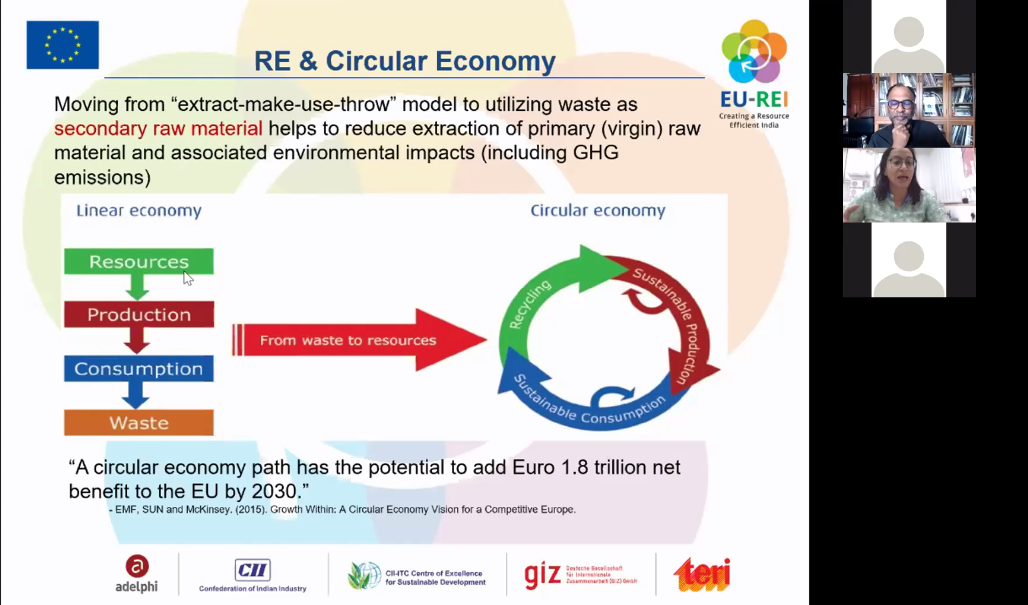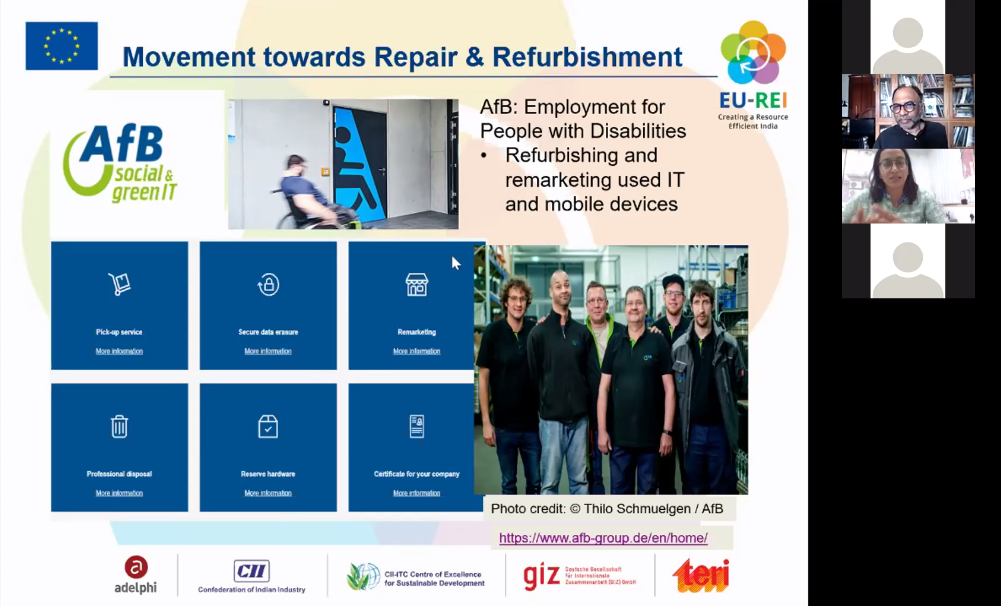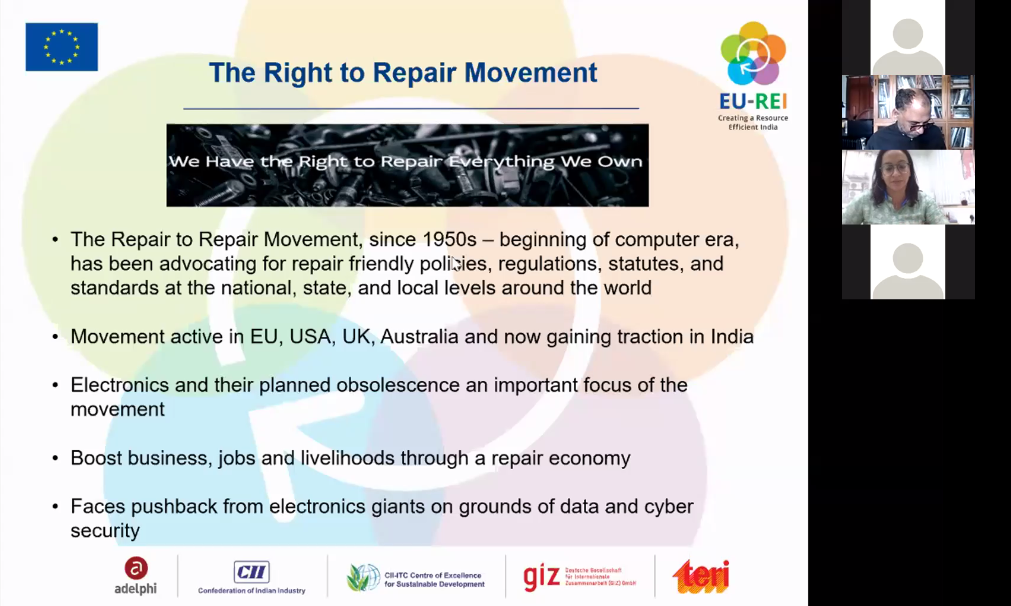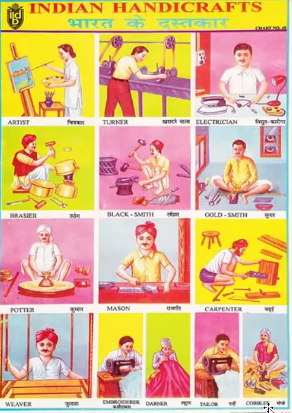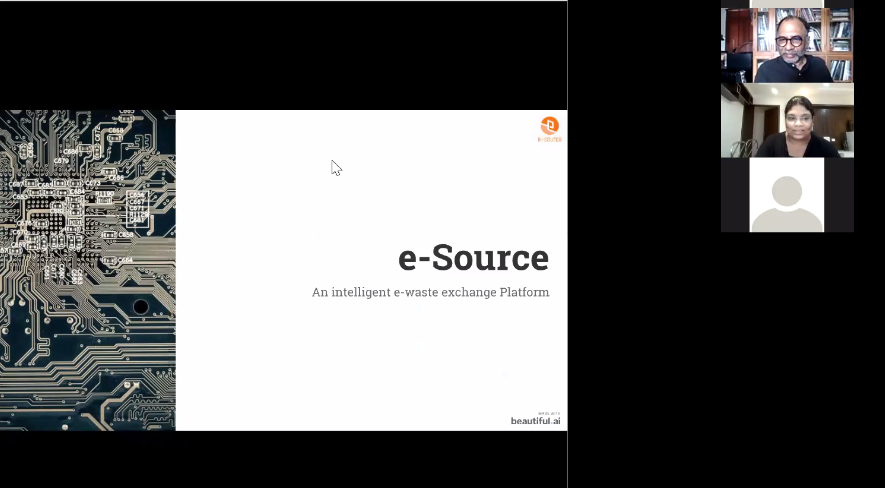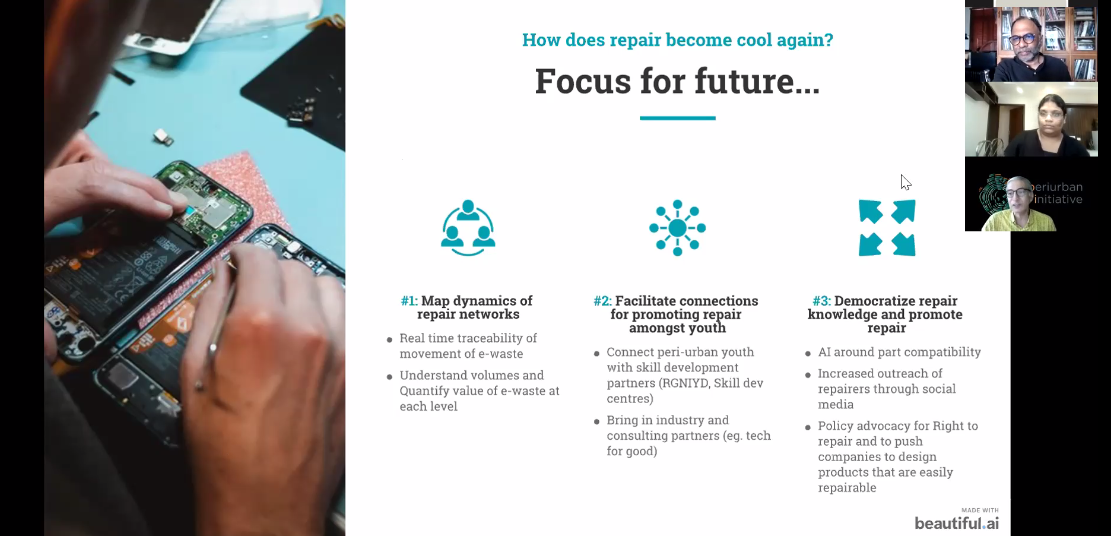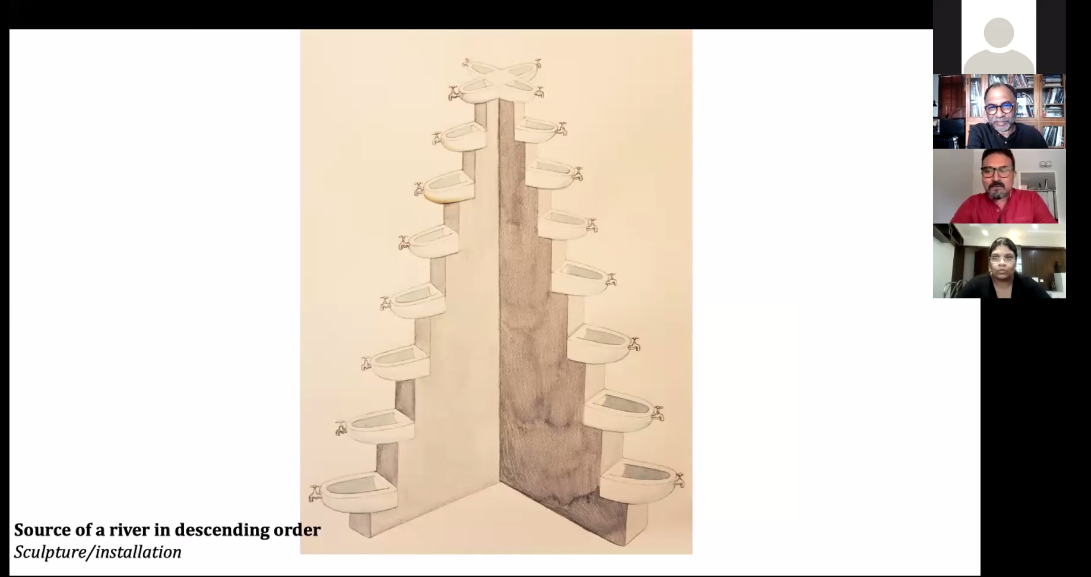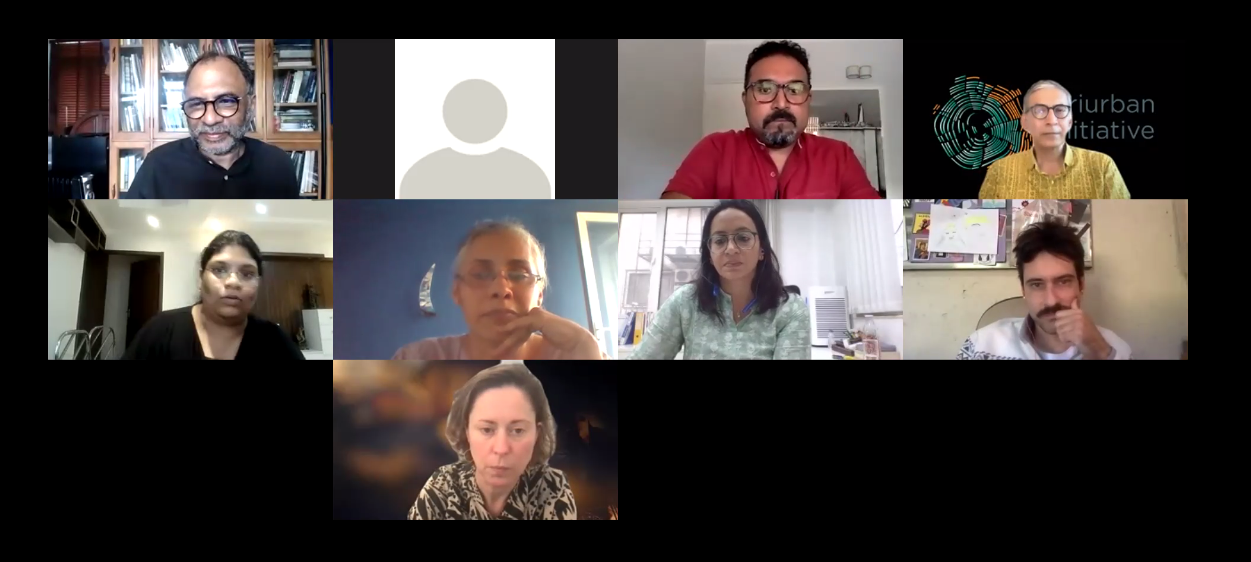Discussing past and present cultures of repair in India and their relationship to climate change, this seminar brings together circle economy policy experts, artists, environmental scientists and scholars together to explore the role that arts plays in such repair-centred narratives. Everyday repair practices are commonplace across India with visibility and access to the repair of cloths and objects within easy reach. With the growing rise in middle class consumption and spending however some repair practices such as those relating to the repair of house goods (knives, pots and pans) are diminishing, while others particularly those relating to electronic and mobile phone repair are increasing. Bringing together artists, sustainability experts, repair practitioners, archivers and SMEs engaged in repairs business the intention of this seminar is to open up a conversation about the aesthetics, ideas and structures within which repair acts occur, their visibility across a range of cultures and their relation to current climate issues.
Agenda
16.00-16.15 Welcome, Ravi Agarwal, Toxics Links
16.15-16.30 Dr. Rachna Arora, GIZ, EU and CES
16.30-16.45 Sharmila Samant, Artist, Shiv Nadar Uni, New Delhi
16.45-17.00 Rishika Reddy and Professor Sudhir Chella Rajan, India Institute of Technology Madras
17.15-17.30 Gigi Scaria, Artist, New Delhi
17.15-18.00 Open Discussion
Speakers and Moderator
Ravi Agarwal (moderator) is an artist, writer, curator and founding director of Toxics Link. Toxics Link is an environmental NGO that has over the last two decades pioneered work on chemical safety, toxics, waste and the recycling sector. Relating to such topics, Ravi has sat on several standards and regulatory committees and actively participates in UNEP, EU and WHO forums. In 1994 he led the successful campaign to save the Delhi Ridge Forest and has been an active advocate for Delhi’s green and river areas. Working in photography, video, public art and installation, Ravi’s work on the relationship between society, culture and nature has been exhibited at Kochi Biennial (2016), Sharjah Biennial (2013) and Documenta XI (2002). In 2011 he co-curated the Yamuna-Elbe project, an Indo-German twin city public art and ecology project. Trained as an engineer and in business management, he has been awarded the IFCS Special Recognition Award (2008) and the Ashoka fellowship (1998). Ravi writes regularly in both academic and popular media on sustainability issues.
Dr. Rachna Arora holds a doctorate degree in environmental chemistry from Indian Institute of Technology (IIT) Roorkee and a TEDx speaker on Circular Economy. She currently works as a Team Leader in the Resource Efficiency project of the Deutsche Gesellschaft für Internationale Zusammenarbeit (GIZ) and at the Circular Economy solutions preventing Marine litter project. Within GIZ her work has focused on bilateral projects, combi-finance and the partnership projects. She currently supports the Government of India (GoI) on policy formulation and its implementation. Alongside her work at GIZ and CES she is a member of the Inter-departmental committee set up by Niti Aayog (Policy think tank, GoI) on Resource Efficiency strategy and Research and Development (R&D) committee set up by the Ministry of Information Technology and Communication (MeiTY), GoI on electronic waste management. She is also a working group member of the FICCI Circular Economy Committee to support industry research and dialogues on Circular Economy.
Gigi Scaria was born in southern Kerala, India, in 1973. In 1995, after completing a Bachelor of Fine Arts degree at the College of Fine Arts, Thiruvananthapuram, Scaria moved to New Delhi where he undertook a Master of Fine Arts at Jamia Millia University. While both of his degrees were in the discipline of Painting, he has developed a cross-media practice. Scaria works across painting, photography, installation, sculpture, and video. His work explores issues of urban development, particularly in relation to migration, economic development and urban architecture. He is interested in the quality of social space in a drastically changing urban environment, with concomitant implications on psychological experience. Since 2000, Scaria has exhibited widely in India, and has participated in major exhibitions and residency programs internationally including in Australia, Brazil, China, Finland, Germany, Hungary, Korea, Italy, Norway, Sweden and the USA. His work represented in major curated exhibitions and biennales in India and internationally, including Venice, Singapore, Kochi-Muziris Biennales; Smart Museum, Chicago; Mori Art Museum, Tokyo; Kunstverein Frankfurt; Ian Potter Museum of Art, Melbourne; Kunsthaus Bern; Fredric Jameson Gallery, Duke University and Tel Aviv Museum of Art, Israel. Work also exhibited in curated exhibitions at National Gallery of Modern Art (Mumbai), Jawahar Kala Kendra (Jaipur) and Lalit Kala Academy (Chennai and New Delhi).
Sharmila Samant is a visual artist who works across a variety of media and forms including installations, performance and photography. Globalisation, identity and consumer culture are issues central to her works, which often involve working with activist groups and communities, particularly those who are marginalised, addressing in turn ideas relating to exchange, accessibility and authorship. In 1998 Sharmila co-founded and ran for several years the Mumbai-based art collective Open Circle, which aimed to create a platform for meaningful dialogue among artists on an intercultural level, who were interested in engaging with contemporary sociopolitical issues via an integration of theory and practice. In 2011 she was invited as an advisor to Art1st Foundation, an organisation that works towards strengthening visual literacy, creative skills, cultural awareness and art pedagogy for children and educators. Since 2013, Sharmila has sat on the academic council of the G5A Foundation for contemporary culture in Mumbai, which supports contemporary art and culture, good governance and sustainability. She also sits on the advisory body of the culture initiative Arthshila, Patna. Sharmila’s installations and video works have been part of many prominent exhibitions in biennales, museums, artist-led spaces and alternative venues in India and abroad. In 2013 she was invited to become a core faculty member at the Department of Art, Design and Performance of the Shiv Nadar University, where she continues to work and run the Master in Fine Arts programme.
Rishika D is passionate about facilitating horizontal transfer of technology across sectors to drive change. Her interest lies in deploying tech tools to bridge needs pertaining low-tech traditional industries especially agriculture and waste management. She currently works at the Indo-German Centre for Sustainability as a Project Officer on the Global Pericene Project. Within this role, she has been working on developing, open source e-Source- an e-waste exchange platforms that enable groups (individual households, institutional buyers, and sellers of e-waste) to trade formally, while also building material circularity.
Professor Sudhir Chella Rajan teaches social and political theory at the Department of Humanities and Social Sciences, IIT Madras. He is also associated with the Indo-German Centre for Sustainability, where he works on periurban initiatives with a number of other researchers and community groups, who are interested in addressing the challenges of sustainability in the hinterland of cities. It is through this lens that he has become interested in questions of repair and reuse particularly in relation to electrical and electronic waste.
What Happened
The seminar opened with Ravi, welcoming everyone.
Ravi followed with a small introduction about repair and the meaning behind the title of the seminar. Providing an overview of the TALES OF CARE AND REPAIR project, Ravi explained further what the seminar hopes to investigate and how the concept of repair is changing in India and has changed over the years. Ravi welcomed and introduced the esteemed panel and handed over the session to our panellists.
The first panellist was Rachna Arora, Rachna spoke about the project undertaken by their team at GIZ and explained the 6Rs and circularity in economics and how these terms are viewed in the context of India. Rachna gave a brief about the initiatives undertaken and highlighted the EU-India joint declaration on resource efficiency circular economy singed by the respective representative. She connected their works to the UN Sustainability Goals and in particular Goal 12 on “Responsible Consumption and Production”. Rachna also commented on the design phase of a product and how to Refuse should be adopted first before reducing it. Dr Rachna concluded by emphasizing on the right to repair movement and its relevance in the Indian market and also how consumer behaviour should be given attention to bring about change.
Next, we had Sharmila Samant, who began by talking about the ethics of care developed by the feminist psychologist Carol Gilligan, which talks about relationships and dependencies. She further commented on how earlier everything was recycled, reused, passed on, and repairing was the way of life, nothing was thrown away. Sharmila then connected the art of repair with her works and emphasized the necessity for artists to turn to what already exists, particularly which has been designated as useless, dated, broken, disgusting, or irremediable. Rather than make new things, create more objects. She questioned the current practices and hoped that if artworks now can be a cautious study of revisioning, maintenance and critical repair of what already exists? Sharmila concluded by sharing her workshop experiences held in Japan and Korea which was around the traditional apparel patchwork technique called Sashiko.
Next, we were joined by Prof Sudhir Chella Rajan and Rishika Reddy. They explained their ongoing project called E–source which is an intelligent platform that would help people look at end of life products as a key resource that would drive sustainable and circular economies forward rather than the waste that needs to get rid of. Rishika spoke about the growing quantum of E-waste globally and how their project focuses on increasing the share of repair and reuse in this e-waste space, as they believe it would increase the efficiency of circularity in terms of the reverse logistics supply chains. Prof Rajan and Rishika concluded their talk by highlighting the need to build networks and reach out to further stakeholders.
Our final speaker of the day was Gigi scaria, who introduced his work and fellowship in Australia, and how he curated an exhibition that had to connect with the core aspects of India and Australia. Gigi went over his practice of getting involved with the urban spaces and the constructions and the logic of the inhabitants and living within the urban space. Gigi further explained his other works and how it aligns with the idea of repair or care and also highlighted the destruction and the healing required of large landscapes. Gigi concluded by highlighting the social hierarchy present and how through his medium he tried to bring that into focus.
The webinar was concluded by a fruitful question and answer session. Questions raised from the audience focused on:
- If the E-source website developed by IIT Madras will actively involved with working on PRO, EPR and whether it would push manufacturers to collect end of life products.
- Different companies, organizations that are now moving on to adopting circular economy models, how can we build more trust and draw attention to refurbished, recycled goods.
- In our social landscape, we cannot forget the social hierarchy when we think of repair and care, or the informal sector because this is very much entangled with that question of who is doing this work.
